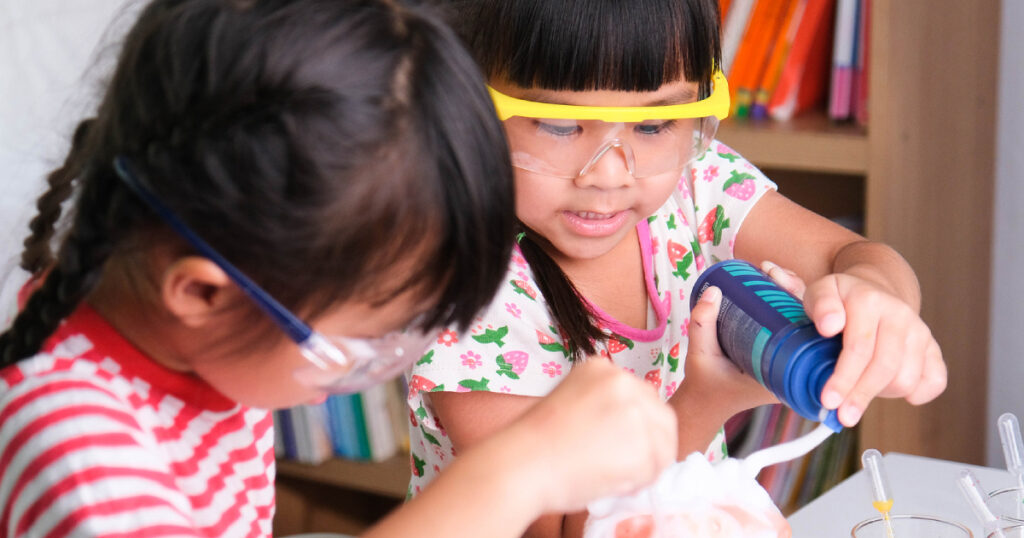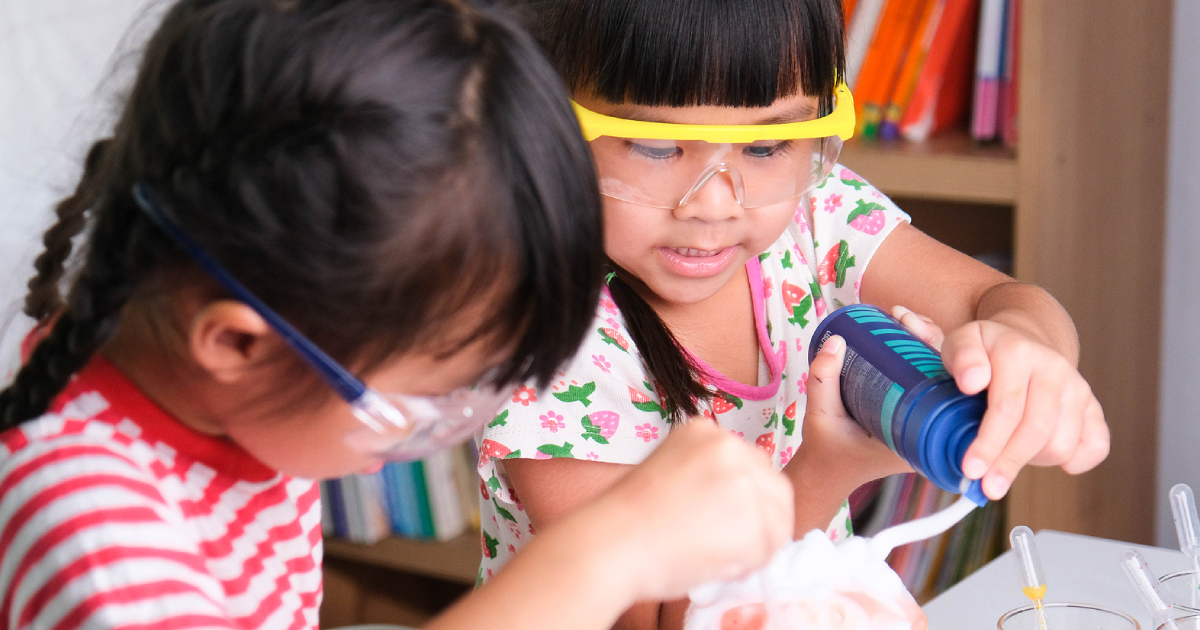
National Day isn’t just a time for red and white clothes or fireworks in the night sky—it’s also a great opportunity to spend quality time with your child while learning something new. Science doesn’t have to be all textbooks and theory. With a few simple materials and a curious mind, kids can explore exciting concepts right from home.
To celebrate Singapore’s birthday in a meaningful and educational way, here are four hands-on science experiments that are fun, safe, and packed with learning value. Whether your child is in lower or upper primary, these activities are sure to ignite curiosity and spark thoughtful conversations, especially when guided by a supportive adult.
1. Make a fizzing “fireworks in a jar” display
This experiment captures the celebratory spirit of National Day while introducing basic chemistry to young learners. All you need is a clear jar, some oil, food colouring, and warm water.
Start by filling the jar three-quarters full with warm water. In a separate bowl, mix a few tablespoons of oil with several drops of different food colouring. Use a fork to gently stir the mixture, breaking the food colouring into smaller droplets. Then, slowly pour the oil mixture into the jar of warm water and observe what happens.
As the food colouring drops slowly fall through the oil and hit the water, they burst like tiny fireworks! This simple setup teaches children about density and how different liquids interact without needing a full science lab.
It’s an ideal introduction to liquid layering and solubility, topics that form the foundation of many concepts in primary science tuition.
2. Create a red and white walking water experiment
To honour Singapore’s flag colours, this experiment is a clever way to explore capillary action—the process that allows water to move upward through materials like paper or fabric.
You’ll need six small clear cups, red food colouring, and some folded paper towels. Arrange the cups in a circle with alternating colours: fill three cups with water and leave the others empty. Add red food colouring to one cup of water and leave another one plain. Then, place a folded paper towel to connect each water-filled cup to an empty one.
Over a few hours, you’ll see the coloured water “walk” along the paper towels and mix in the empty cups, eventually giving you beautiful shades of red and pink. It’s an exciting visual experiment that encourages children to make predictions and draw conclusions—a key skill in science.
This is a perfect one to try if your child has recently encountered topics such as states of matter or absorption in class.
3. Launch a balloon-powered rocket
National Day often features a showcase of Singapore’s technological and aerospace achievements. Tie in this theme with a fun rocket launch using just a balloon, a straw, string, and tape.
Thread a long piece of string through a straw and secure each end of the string to two chairs placed far apart. Blow up a balloon (but don’t tie it!), tape it securely to the straw, then let it go and watch it zoom forward.
This experiment introduces children to Newton’s Third Law of Motion: for every action, there is an equal and opposite reaction. It’s a great way to discuss propulsion and forces without needing to dive too deep into formulas.
Children can test different balloon sizes, amounts of air, or string lengths to explore which combinations give the fastest or longest rides, sparking an early appreciation for experimentation and testing.
If your child enjoys this kind of activity, it may be a good indicator that they’re ready for more structured science learning through science tuition or enrichment programmes that nurture investigative skills.
4. Build a DIY lava lamp with local flair
Celebrate Singapore’s multiculturalism by creating a DIY lava lamp that’s as vibrant as a traditional Peranakan tile. You’ll need a clear plastic bottle, water, oil, food colouring, and effervescent tablets (like antacid tablets).
Fill the bottle about one-third full with water and top it off with oil, leaving some space at the top. Add a few drops of food colouring, red or white to stick to the National Day theme, and wait for the colouring to settle at the bottom. Then, break an effervescent tablet in half and drop it in. Watch as colourful blobs dance up and down in the bottle, mimicking a real lava lamp.
This experiment showcases chemical reactions (between the water and the effervescent tablet) and the properties of immiscible liquids (oil and water). It’s an excellent starting point for talking about carbon dioxide, gas formation, and density.
To add a National Day twist, use a torch to shine light through the bottle in a dark room and recreate a mini light-up celebration.
Why hands-on science matters
Engaging children with science in a fun, playful environment fosters natural curiosity and encourages them to ask questions, form hypotheses, and observe results. These are exactly the kinds of skills that MOE teachers aim to build in the classroom—but you can reinforce them at home through activities like these.
When children can link what they learn to real-world experiences, like a National Day celebration, it helps the knowledge stick. Plus, doing these experiments together gives parents a chance to bond with their kids over something meaningful and interactive.
Conclusion: Nurturing young scientists with the right support
Science is all around us, and it can be both exciting and accessible with the right approach. Whether your child is just starting to show interest or already asking deep questions about the world, simple experiments like these are a wonderful way to encourage exploration and build foundational skills.
Ace Academia’s team of experienced tutors, including ex-MOE teachers, understand how to tap into a child’s natural curiosity to develop strong scientific thinking. If you’re looking to deepen your child’s interest in science beyond fun home activities, structured guidance from passionate educators can make all the difference.




